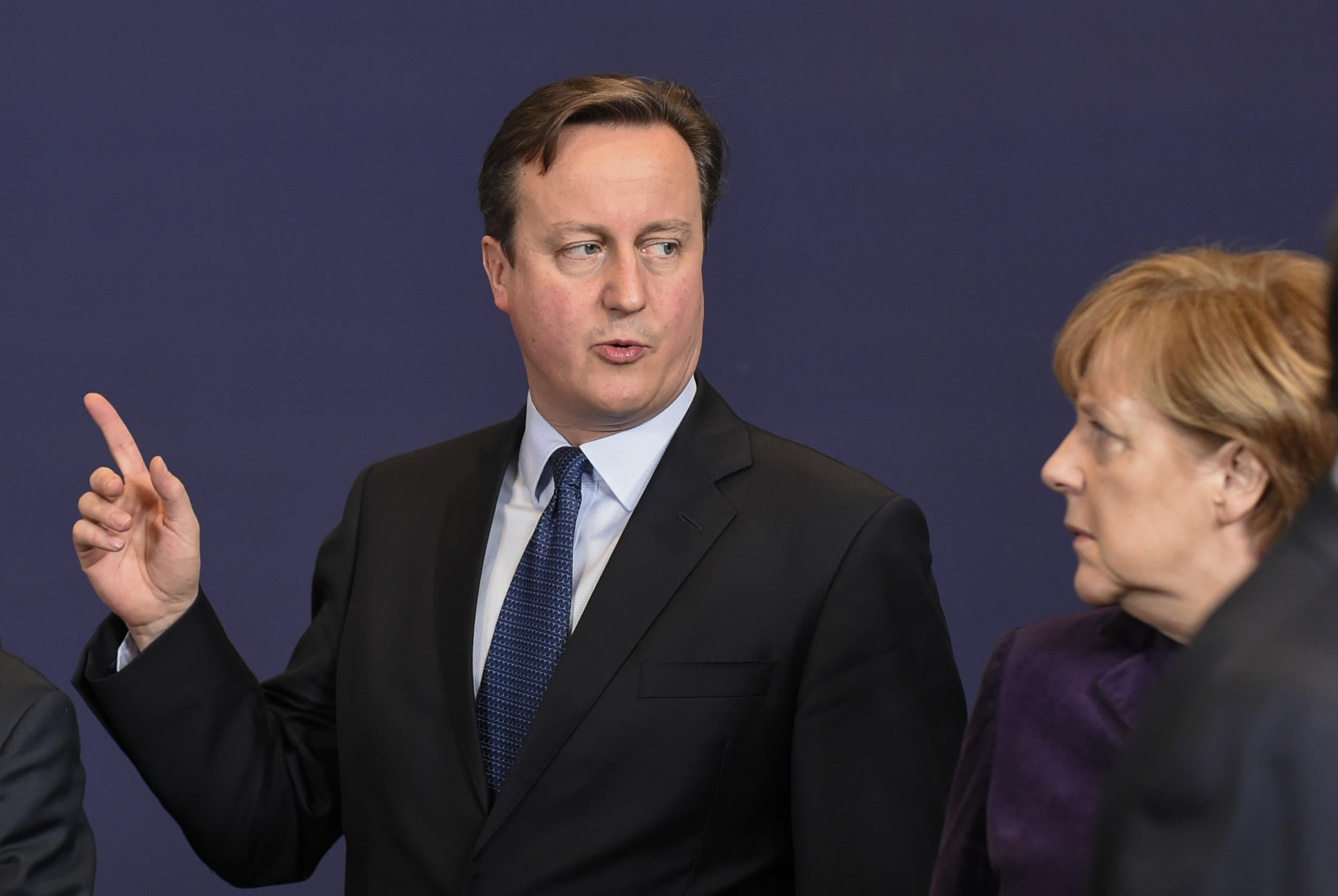EU refuses to give David Cameron the four-year ban on EU migrant benefits he requested
Benefits will instead be gradually increased for migrants

The European Union has not granted David Cameron a full four-year ban on EU migrants claiming in-work benefits, detailed documents of Brussels’ proposals show.
Mr Cameron had previously demanded that people coming to the UK “must live here and contribute for four years before they qualify for in-work benefits or social housing”.
However, the European Union has instead only offered the UK the ability to partially reduce benefits for four years – rather than introduce a four-year waiting period as specified by Mr Cameron.
Under the proposals, benefits for new migrants would gradually increase during the four year period.
The plans would “authorise the Member State to limit the access of Union workers newly entering its labour market to in-work benefits for a total period of up to four years from the commencement of employment”.
However, the document clarifies: “The limitation should be graduated, from an initial complete exclusion but gradually increasing access to such benefits to take account of the growing connection of the worker with the labour market of the host Member State.”
This means that migrants would not have to wait for four years before claiming such benefits, as demanded by the PM.
Out-of-work benefits are unaffected by the changes and Mr Cameron had not sought any changes to these rules.
European Council president Donald Tusk unveiled the draft deal with Mr Cameron on Tuesday morning.
According to the proposals, the substance of the deal would be written into treaties when they were next revised for other purposes.
Mr Cameron will have to convince other EU nations at a summit later this month as well as his own MPs and the British people of the deal’s effectiveness.
After the deal is taken forward Mr Cameron will hold a referendum on European Union membership – expected before the end of 2017 but possibly as early as this summer.
Polls currently show a moderate lead for the “in” campaign.
Mr Cameron will face Labour leader Jeremy Corbyn in the House of Commons later today to discuss the deal.
Richard Tice, co-founder of the Leave.EU campaign, has dismissed Brussels’ draft plan for a new relationship between the EU and the UK as a “fudge and a farce”.
“This draft plan is a fudge and a farce. We already have a “red card” at the governmental level but are in a voting minority more often than any other EU member. Why should duplicating the process at the parliamentary level achieve anything besides making the EU even slower and clumsier in a crisis?
“We don’t need a brake with someone else’s hand on it, we need control of the steering wheel. Besides, planned increases in the minimum wage will attract more new migrants than benefits cuts will.
“We certainly don’t need empty promises of an opt-out from “ever closer union” in some future treaty after the referendum, will evaporate even faster than our last promise on CAP reform did.”
Some eurosceptics have already branded the negotiations a “charade”. Ukip leader Nigel Farage has said Mr Cameron’s goals will change nothing even if they are granted in full.
Subscribe to Independent Premium to bookmark this article
Want to bookmark your favourite articles and stories to read or reference later? Start your Independent Premium subscription today.

Join our commenting forum
Join thought-provoking conversations, follow other Independent readers and see their replies